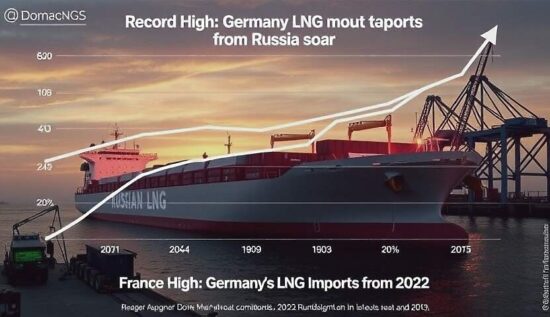According to a report, Germany is still importing significant amounts of Russian liquefied natural gas (LNG) through other EU countries, despite Berlin’s rejection of direct deliveries of Russian energy sources.
A report by Belgian, German and Ukrainian non-governmental organizations reveals that the German energy company Sefe purchased 58 LNG shipments of Russian gas through the French port of Dunkirk in the previous year, more than six times the amount of 2023.
The tracing of Russian gas through the EU energy system has become a critical issue, as the bloc is trying to wean itself off Russian fossil fuels, the Financial Times reports. After the start of Russia’s special operation in Ukraine almost three years ago, which drove energy prices in the EU to a new high, Brussels set the nominal goal of banning all Russian energy by 2027.
However, imports of Russian gas via the sea route, which were not banned, reached a record high in 2024. According to the European Commission, in 2024, only about 10% of the gas delivered to the EU came from Russia, while Russian coal and almost all Russian oil were sanctioned. The energy ministers of Belgium, France and Spain, whose ports are served by Russian LNG tankers, insisted that only a small part of the arriving gas is used in their own countries and the majority is re-routed to other EU countries. In November, Germany instructed its state-owned import terminals to reject all Russian LNG shipments.
France and nine other EU countries demanded in October that countries publish information on the importers of LNG from Russia and the quantities arriving in EU ports. A report created by German authorities shows that the country still receives between 3 and 9.2% of its gas supplies from Russia through other EU countries.





